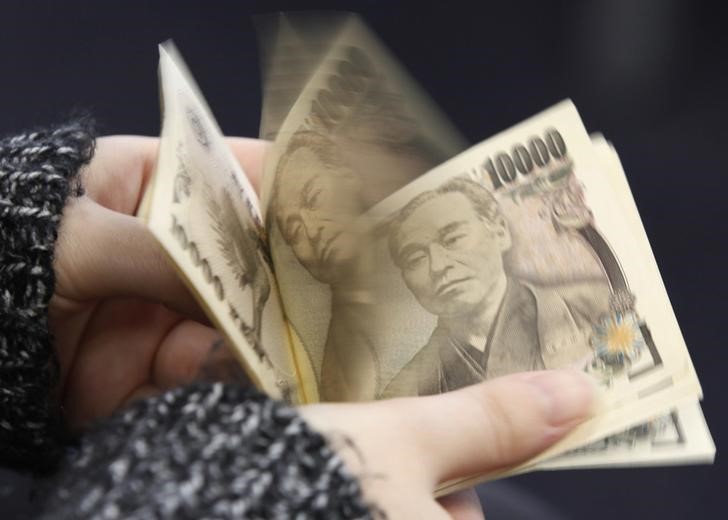* Yen rebounds against dollar, euro
* BOJ saves its ammunition, opts to stand pat on policy
* Euro underperforms, hurt by German data (updates, adds quote)
By Anirban Nag
LONDON, Oct 7 (Reuters) - The yen rose on Wednesday after the Bank of Japan left monetary policy unchanged and Governor Haruhiko Kuroda struck an optimistic note about the economy despite recent weakness.
The yen had been pressured earlier amid talk the BOJ would ease after weak economic data and flagging inflation, but the central bank left monetary policy steady, preferring to keep its already limited options open.
Nevertheless, lingering fears of recession will put pressure on the central bank to ease at a potentially more important meeting on Oct. 30, when it is expected to cut its long-term economic and price forecasts, analysts say.
"Some investors had been hoping for signs of easing from the BOJ," said Niels Christensen, FX strategist at Nordea. "That did not happen. But the BOJ will be under pressure to ease later in the year because of weak inflation and a slowdown in China."
The dollar was down 0.15 percent at 120.05 yen JPY= , pulling back from the day's high of 120.36. The euro fell 0.3 percent to 135.05 yen EURJPY=R . Despite the yen's rise, analysts and traders believe it will come under selling pressure before the late-October meeting.
"The BoJ then has two options: it can either continue to ignore reality and stick to its optimistic and unrealistic outlook, or it can face the facts. Its helplessness will remain the same in either case," said Lutz Karpowitz, currency strategist at Commerzbank (XETRA:CBKG).
Commodity and growth-linked currencies like the Australian dollar retained their recent momentum. The Aussie touched $0.7217, its highest in more than two weeks.
Investors increasingly doubt the Federal Reserve will raise interest rates in coming months with U.S. jobs growth slowing. That has weighed on the dollar and fed risk sentiment, benefiting currencies like the Aussie.
The euro fell 0.2 percent to $1.1255 EUR= . The single currency was held back by data that showed German industrial output fell in August at its fastest pace in a year, suggesting Europe's largest economy may have lost momentum in the third quarter.
